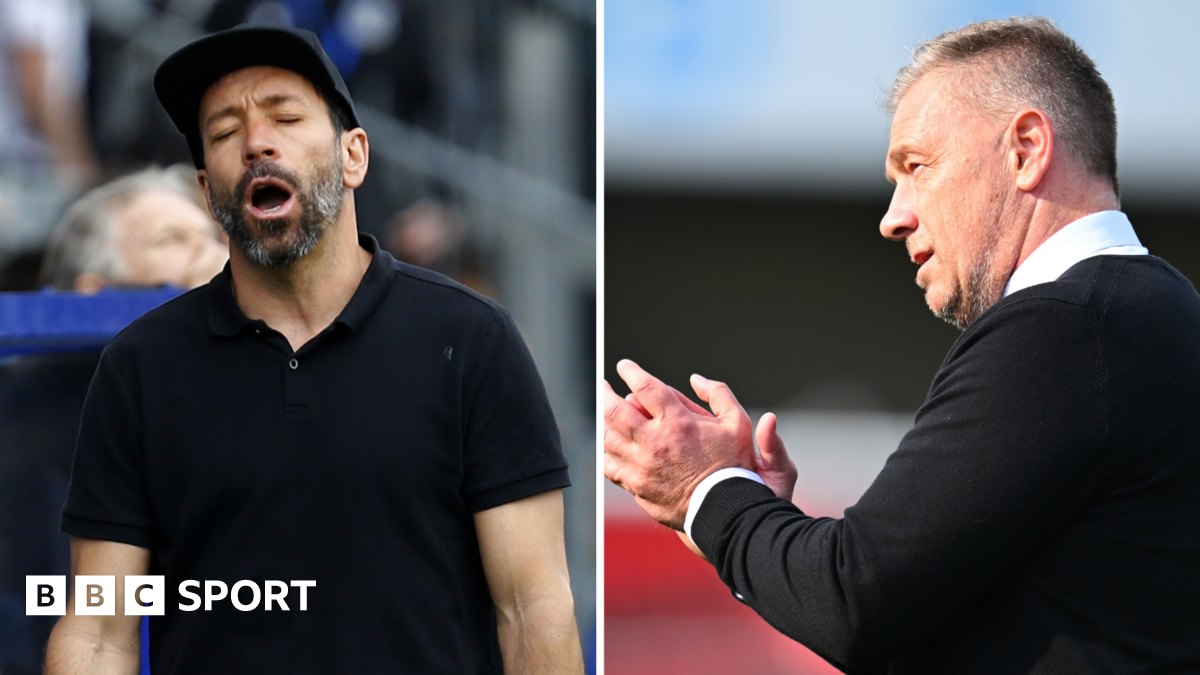'I wish I knew the risks': Two Bristol football legends on the reality of living with CTE | ITV News West Country
At his home in Bristol, Ian Alexander shows me around his garden shed; a humble yet poignant space which is the setting for some snapshots of the career of one of Bristol’s most popular footballers.
Pictures, shirts, tickets adorn the walls. Alexander smiles proudly showing me his achievements. He is about to tell me his story. The story of his life-changing diagnosis.
He is a Bristol Rovers legend. I see him at matches and the respect and adulation he receives from fans at the Memorial Stadium is heart-warming. He is regularly mid-flow, dissecting the football he has just watched and breaking down what he would do as manager or a player. He simply grips the people he talks with.
A man who spent the best years of his life giving everything for the club’s badge. Speaking to him now though, he feels this has come at a cost.
In May last year, Ian Alexander was diagnosed with chronic traumatic encephalopathy (CTE), the neurological condition believed to be caused by repeated blows to the head. It slowly gets worse over time and can lead to dementia.
Doctors have given him between four and six years to live.
His bravery in opening up and discussing his diagnosis will no doubt inspire others. He speaks frankly, sometimes bluntly but always with honesty.
As a journalist there are few things that affect you in the way someone saying ‘I don’t want to be here’ does.
He told me he felt like a 'burden' to his loved ones, as he sat next to his wife.
"I want to fight it but when you have CTE there is nothing there to fight it with, it is just a horrible waiting game", he said.
After sharing what he did with me in the interview, he simply looks at me and asks, ‘Was it okay?'
Scientists are currently researching the link between brain conditions like CTE and dementia with impact sports like football. But current evidence does indicate that CTE is caused by repeated blows to the head.
Ian knows that any scientific breakthroughs may come too late to change his life's trajectory, but he has summoned the courage to call for the changes that could protect the footballers of the future.
The Football Association says it has already taken steps to address potential risk factors while research is ongoing - including the new rule this season which bans heading for children under the age of 12.
In my discussions with Ian about the condition he is living with, another name was mentioned - David Rodgers, the legendary Bristol City defender from the 70s and 80s.
He formed part of the famous team that was promoted to the top-flight of English football in the 1970s under Alan Dicks.
Much like Ian at Bristol City’s old rivals Rovers, David Rodgers' name is also shouted from the terraces of his club.
He forms part of the Ashton Gate 8, the players who tore up their contracts to save the Robins from administration in 1982.
Following his career, he was told he has a brain condition, but unlike Ian, he had decided to keep it private for some years.
He was diagnosed with a shaking syndrome in 2022. Again, like Ian, he was then told he had CTE.
David is someone I had come across previously, during my time covering Bristol City.
He was always a friendly face and an approachable personality in the Legend’s Lounge at Ashton Gate on city match days.
When I first asked him privately about his diagnosis, he was very matter-of-fact in his response.
After discussing my conversation with Ian, David then made the brave decision to talk about his condition for the very first time publicly.
There are numerous similarities between the pair and the way in which they discuss their lives. Both downplaying themselves individually, always referring to the good times they enjoyed as a team.
David's been living with the condition for years, as yet it has not deteriorated further and he suffers no issues with memory.
I spoke to him at Ashton Gate, which was holding an event aimed at bringing together older supporters, many of whom are themselves living with brain conditions like dementia.
During the event he recalled all of his best memories of his playing days.
He listed countless times he rallied through injuries and in shocking cases played after being on the end of some serious head collisions.
It is Bristol football united in many ways - both players calling for more research, funding and care for people like them and the next generation of footballers.
But both of them were resolute in saying they had no regrets about playing football, they just wish they knew the risks that came with it.
For both, the good times of their career from their younger chapters far outweigh the tough times they’ve faced in the later stages of their lives.
Their attitudes towards their diagnoses largely mimics their attitudes throughout their football careers. ‘Don’t complain, get on with it’: It's a mindset that’s secured their place in Bristol footballing history.









